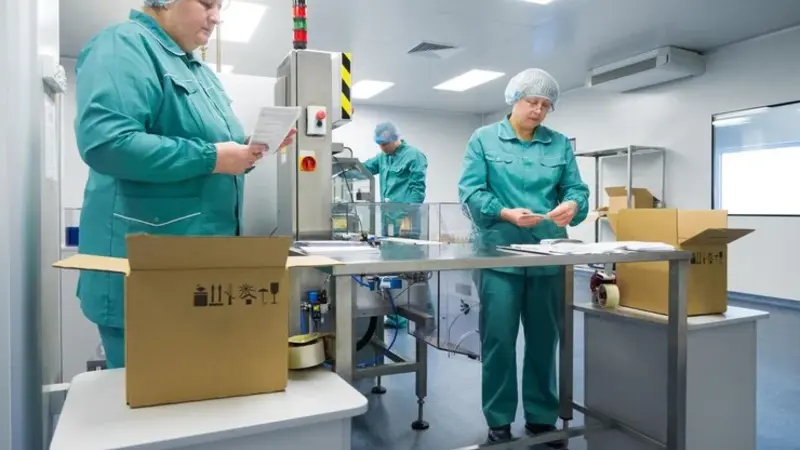In the realm of pharmaceutical manufacturing, the pursuit of excellence is not just desirable; it’s imperative. The industry demands meticulous attention to detail, adherence to stringent regulations, and a commitment to producing high-quality products efficiently.
However, achieving greatness in pharmaceutical manufacturing requires more than just meeting the minimum requirements. It necessitates a strategic approach that focuses on continuous improvement, innovation, and optimization across all facets of operations. In this blog post, we will explore key strategies and best practices to elevate your pharmaceutical manufacturing operations from good to great.
Embrace Continuous Improvement:
The journey to greatness begins with a mindset of continuous improvement. Encourage a culture within your organization that values innovation and seeks out opportunities for enhancement at every stage of the manufacturing process. This could involve implementing regular performance evaluations, soliciting feedback from employees, and fostering a sense of ownership and accountability among team members.
Invest in Technology and Automation:
Technology plays a pivotal role in modern pharmaceutical manufacturing. Investing in state-of-the-art equipment and automation systems can significantly enhance efficiency, accuracy, and productivity. From advanced manufacturing software for process optimization to robotic systems for handling repetitive tasks, leveraging technology can streamline operations and minimize the risk of errors.
Prioritize Quality Assurance and Compliance:
Maintaining the highest standards of quality assurance and regulatory compliance is non-negotiable in the pharmaceutical industry. Implement robust quality management systems and adhere strictly to Good Manufacturing Practices (GMP) guidelines to ensure the safety, efficacy, and integrity of your products. Regular audits, inspections, and training programs should be integral components of your quality assurance strategy.
Optimize Supply Chain and Logistics:
A well-optimized supply chain is essential for the seamless flow of materials and products throughout the manufacturing process. Collaborate closely with suppliers to ensure timely delivery of raw materials and components while minimizing inventory costs and waste. Embrace lean principles to streamline logistics and eliminate inefficiencies in warehousing, transportation, and distribution.
Harness Data Analytics for Decision-Making:
Data is a powerful tool for driving informed decision-making and optimizing manufacturing operations. Implement robust data analytics solutions to gather, analyze, and interpret relevant data points across the production process. By leveraging insights derived from data analytics, you can identify trends, detect anomalies, and make proactive adjustments to enhance efficiency and quality. visit to read about manufacturing software.
Promote Cross-Functional Collaboration:
Collaboration between different departments and teams is essential for achieving synergy and alignment in pharmaceutical manufacturing operations. Foster a culture of collaboration and open communication, where ideas are shared freely, and interdisciplinary teams work together towards common goals. Cross-functional collaboration can lead to innovative solutions, faster problem-solving, and improved decision-making.
Invest in Employee Training and Development:
In the manufacturing industry, the importance of a well-trained and knowledgeable workforce cannot be overstated. The success of any operation is ultimately dependent on the skills and expertise of its employees.
This is why investing in comprehensive training and development programs is essential to equip workers with the tools and resources necessary to excel in their roles. When it comes to quality management systems, such as AS9100, it is even more critical to ensure that your team is adequately trained.
AS9100 Lead Auditor training is a crucial part of continuous learning and professional growth, and it can play a significant role in promoting a culture of excellence and quality commitment. By recognizing and rewarding excellence in your staff and encouraging them to pursue continuous learning, you can help your organization achieve its goals and thrive in today’s highly competitive manufacturing landscape.
Stay Agile and Adaptive:
In a dynamic and rapidly evolving industry like pharmaceuticals, adaptability is key to staying ahead of the curve. Embrace agility in your operations, processes, and strategies, and be prepared to pivot and adjust to changing market conditions, regulatory requirements, and technological advancements. Maintain a forward-thinking mindset and be willing to embrace innovation and experimentation to drive continuous improvement.
Monitor Key Performance Indicators (KPIs):
Establishing and tracking key performance indicators (KPIs) is essential for measuring the effectiveness and success of your manufacturing operations. Identify relevant KPIs that align with your organizational goals and regularly monitor and analyze them to assess performance, identify areas for improvement, and drive continuous optimization efforts.
Strive for Sustainability and Environmental Responsibility:
As sustainability and environmental concerns continue to gain prominence, pharmaceutical manufacturers must prioritize eco-friendly practices and minimize their carbon footprint. Explore opportunities to reduce waste, conserve resources, and implement sustainable manufacturing processes that align with environmental best practices and regulatory requirements.
Conclusion
Elevating your pharmaceutical manufacturing operations from good to great requires a multifaceted approach that encompasses continuous improvement, technological innovation, quality assurance, collaboration, and adaptability. By embracing these strategies and best practices, you can optimize efficiency, enhance quality, and position your organization for sustained success in a competitive and ever-changing industry landscape.
